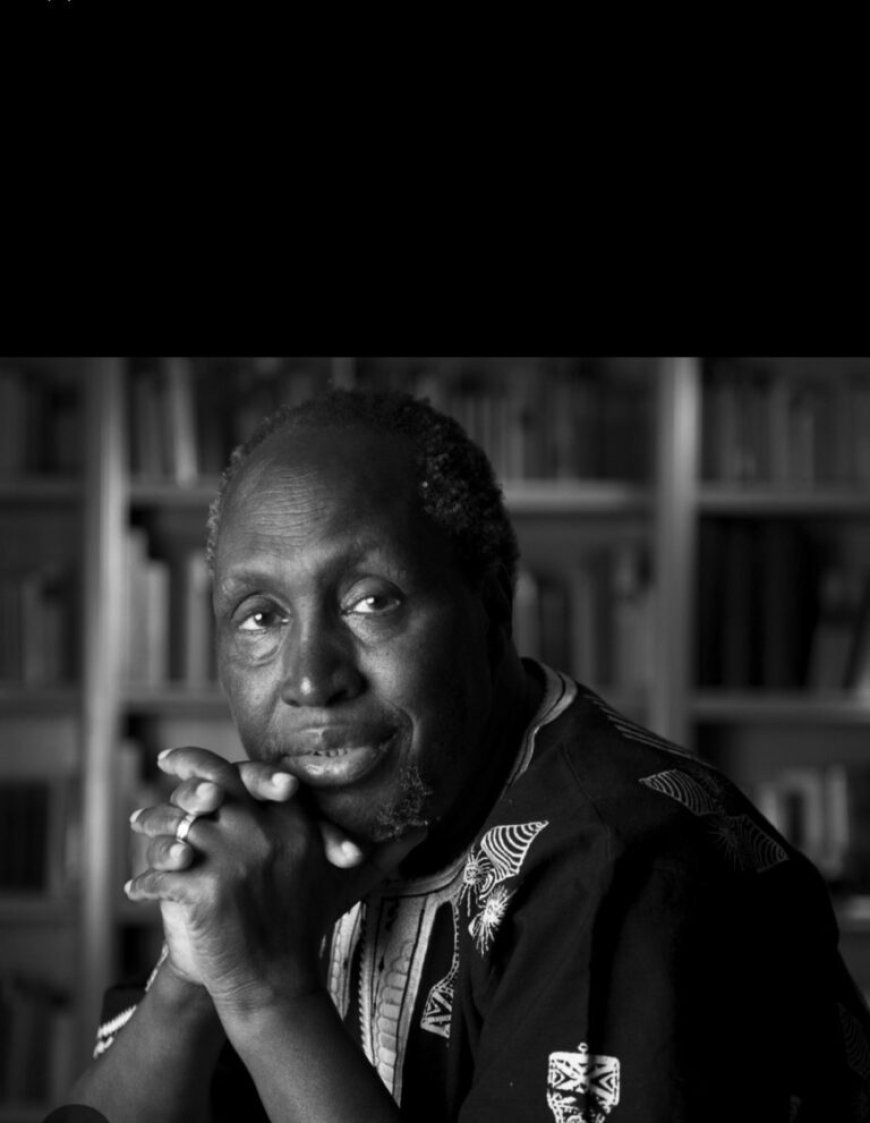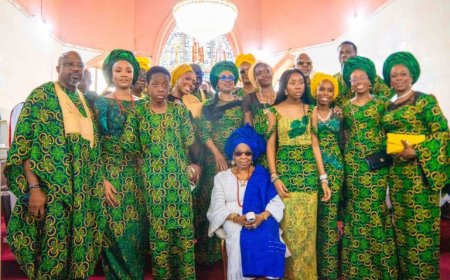Ngũgĩ wa Thiong’o, Iconic African Literature Giant Dies Aged 87
The sun, buried in the belly of the sky towering over the continent of Africa, has set, as a major star in the galaxy of African literature bowed and bid the world farewell with the announcement of the death of the celebrated Kenyan novelist, playwright, and academic, Ngũgĩ wa Thiong’o, aged 87.

By: Olufemi Orunsola
The sun, buried in the belly of the sky towering over the continent of Africa, has set, as a major star in the galaxy of African literature bowed and bid the world farewell with the announcement of the death of the celebrated Kenyan novelist, playwright, and academic, Ngũgĩ wa Thiong’o, aged 87.
OPEN TELEVISION NAIJA (OTN) News reports that the daughter of the legendary literarygiant, Wanjikũ wa Ngũgĩ, confirmed his passing on May 28, 2025, in the United States.
OTN News recalls that the deceased African author and advocate of African Literature and language was renowned not only for his pioneering literary contributions but also for his unwavering advocacy for the use of African languages in literature and education.
He was a prominent figure in African letters, Ngũgĩ leaves behind a formidable legacy that reshaped the continent’s cultural and intellectual landscape.
Born James Ngugi on January 5, 1938, in Kamiriithu village, Kiambu County, central Kenya, Ngũgĩ’s early life was marked by colonial hardship and political unrest. He experienced the Mau Mau uprising and the broader context of Kenya’s struggle for independence.
Little wonder, therefore, that those formative influences later shaped his writings and advocacies.
A graduate of Makerere University in Uganda and the University of Leeds in the UK, where his literary voice matured. His first novel, Weep Not, Child (1964), was the first English-language novel to be published by an East African writer. It was followed by The River Between (1965), A Grain of Wheat (1967), and Petals of Blood (1977)—works that critically examined the post-independence disillusionment in Kenya.
His career took a transformative turn in the late 1970s when he began writing in his native Gikuyu language, asserting that language was not neutral but a carrier of culture, identity, and resistance. This marked a radical break from many of his contemporaries who continued to write in English, the language of the former colonial power.
In 1986, he published Decolonising the Mind: The Politics of Language in African Literature, a powerful collection of essays that challenged African writers and intellectuals to reclaim indigenous languages as a form of cultural decolonization. This text became one of the most influential post-colonial works of the 20th century and has been taught widely in universities around the world.
Ngũgĩ wa Thiong’o will be missed and remembered for his contributions to the development of African literature by students of African literature and languages.
What's Your Reaction?
























































